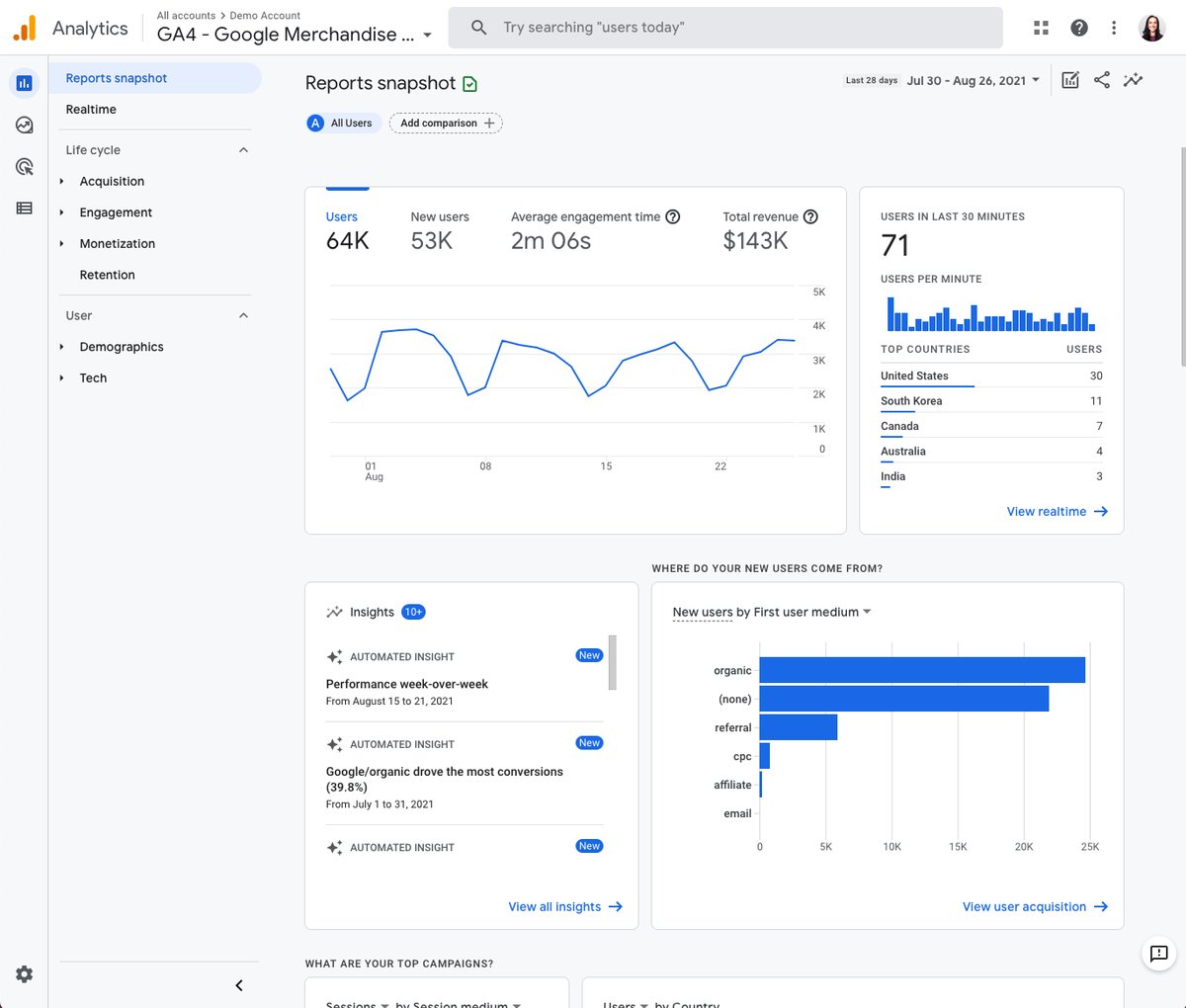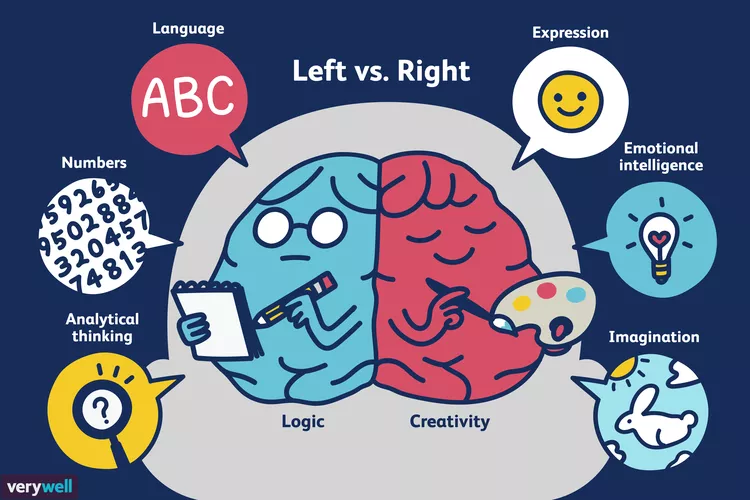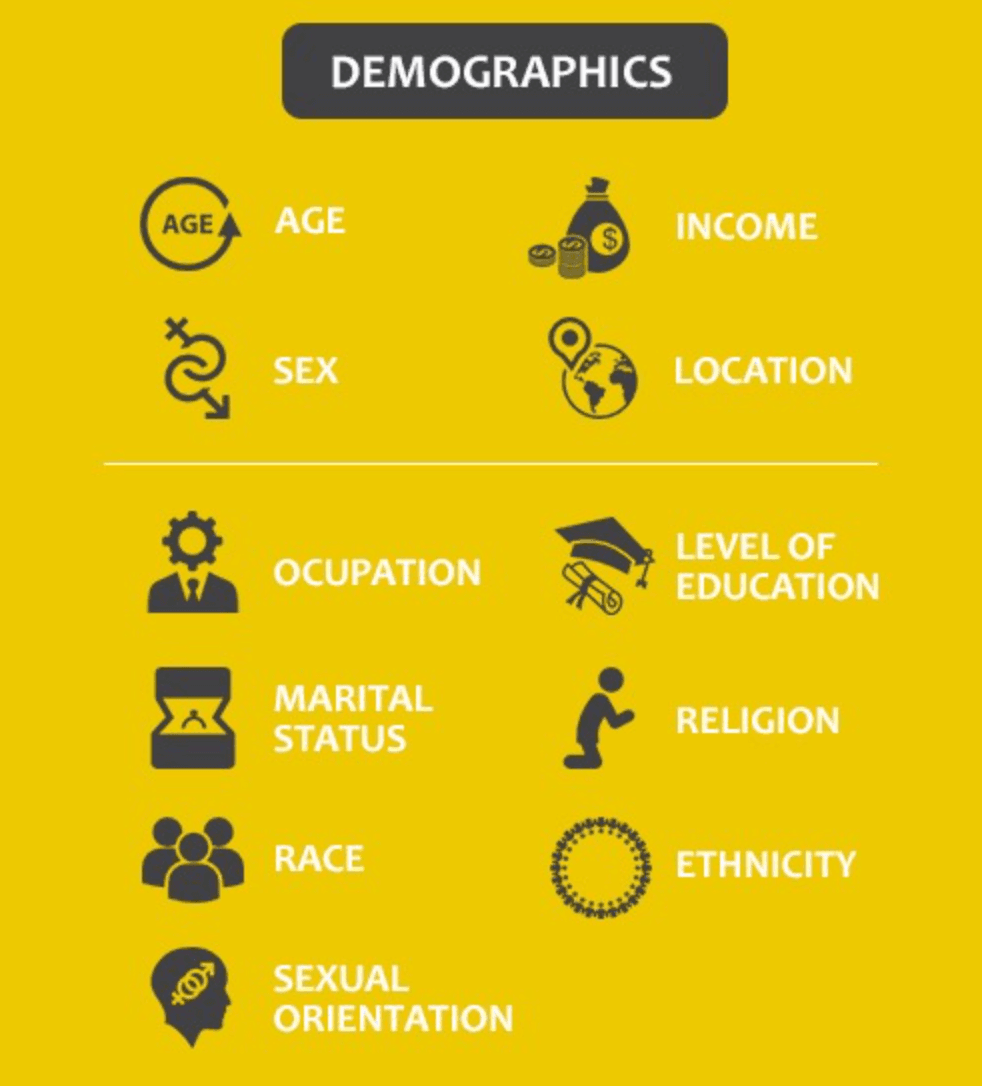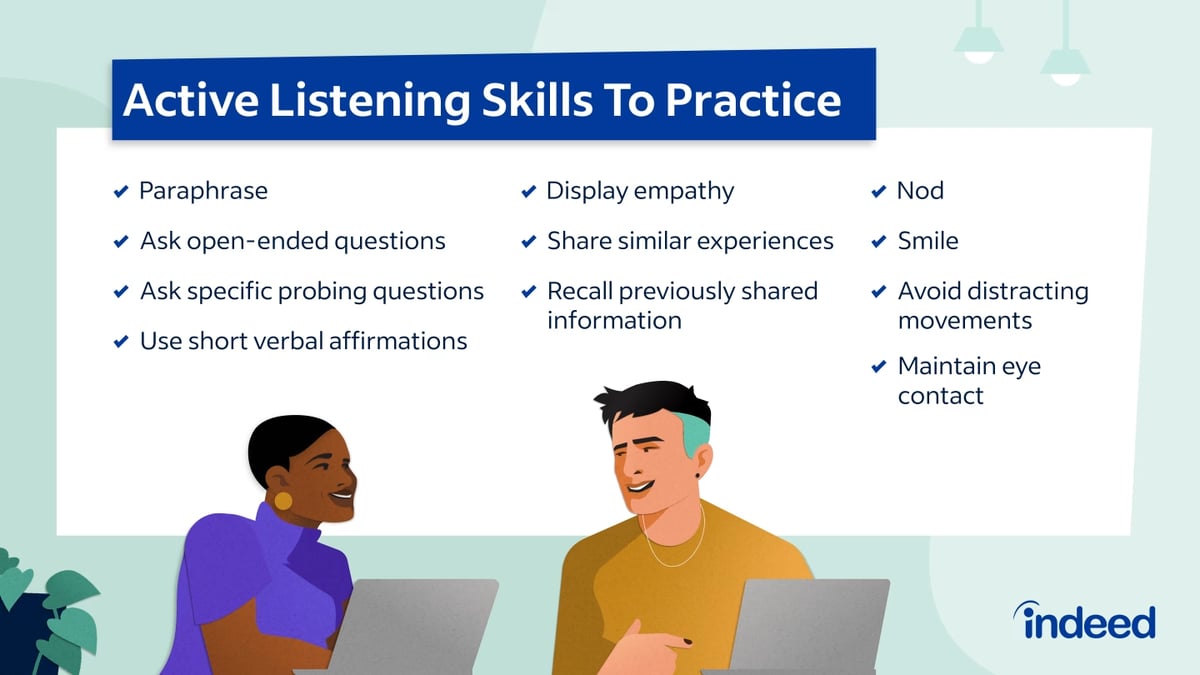If you're new to marketing, you'll quickly see that most marketing is now digital. It's all about creating brand awareness and engaging with customers on platforms like Google and social media sites such as Facebook, Instagram, and others.
After all, that’s where modern consumers — Millennials, Zoomers, and other younglings — hang out the most.
Traditional ways of advertising, like TV, newspaper, billboard, and radio ads, are usually used by larger and well-known companies (like Nike, Burger King, and Microsoft) as they cost a lot.
Either way, no matter where you end up working (even if it’s your own startup), success as a marketer — today or ten years from now — comes down to honing six essential skills.
The Six Skills You Need to Hone as a Marketing Beginner
Without any delay, here’s a primer on the six essential skills you should focus on building as a rookie marketer looking to make it big.
1. Research
Research is the foundation of everything in marketing. Without it, marketing is like trying to hit the bullseye with your eyes closed.
Researching our audience, product, and competitors is important because it helps us understand our customers, their needs, and the best way to reach them.
When we talk about research in marketing, it's not just about googling your rivals or reading industry reports (though these are good places to start). It's about digging deep to truly understand your market and audience to answer key questions, such as:
- Who is your ideal audience?
- What are their pain points?
- What are their desires?
- What is their ideal customer experience?
- Where do they hang out online?
- What kind of content and messaging resonates with them?
There are some fantastic tools out there to help you with your research. Google Analytics, for instance, is a treasure trove of information about who visits your website and how they interact with your content.

Social media platforms also offer insights into your audience's demographics and interests.
Some research tools, such as surveys, user interviews, and social media listening, are important data collection methods. This data can then be analyzed to find useful information that can help guide your marketing strategies.
Ultimately, from the tone of your messaging to the types of content you plan to create, deep research should inform every decision you make as a marketer. Speaking of content, the next skill you need to hone is...
2. Content Creation
Content is the medium through which your brand's voice comes to life and how you get to connect with your audience on a deeper level.
Content creation in marketing revolves around developing digital assets such as blog posts, social media visuals, YouTube trends videos, podcasts, landing page ad copies, and even flyers or posters that engage, inform, and gently persuade your audience. Tools like venngage's Poster maker simplify the design process, allowing marketers to create professional, eye-catching visuals without the need for advanced design skills, all while aligning with left-brained strategic planning. You can also add YouTube channel links or embeds to your digital content, further amplifying your brand’s reach and engagement.

Your research (the first skill) should guide your content creation. Each piece of content should speak directly to your audience's interests, challenges, or desires. Ask yourself:
- What problems does my content solve?
- How does it add value to my audience's life?
- Is it entertaining, educational, inspiring, or all three?
Content creation demands creativity (discussed next), but it doesn’t mean you have to reinvent the wheel. Often, it's about presenting familiar ideas in fresh, engaging ways. You need to be able to think about how you can tell your brand’s story in a way that captivates your audience, whether that means developing a vertical video strategy, an email marketing campaign, or any other format that resonates with your customers. In some cases, a simple yet visually compelling flyer can also deliver your message effectively, especially in local promotions or offline events. Another increasingly popular format is the digital business card. Whether you're attending a networking event or including your contact info in outreach campaigns, tools like Business card by Uniqode, HiHello, or Blinq allow marketers to share their brand, links, and identity in one scan or tap—offering a sleek, on-brand experience that’s easy to update. Design tools like DesignWiz make it easier to create such flyers with a professional look, helping you maintain brand consistency while saving time. From content marketing and email marketing to social media and SEO, there are plenty of options available. Many professionals start by exploring different types and choosing one that aligns with their interests and skills — such as diving into SEO strategies for niche industries like Magento 2 Hosting.
As you build your content creation skills, perhaps with the help of an English writing tutor, the quality of your content improves. For example, after writing ten blog posts, you’re likely to look back at your first post and cringe a little — that’s alright. It means you’re sharpening your skills.
And remember, quality trumps quantity — one well-researched, well-produced piece of content is worth more than a dozen hastily-made posts. Quality content establishes your brand's credibility and keeps your audience coming back for more.
3. Creativity
While some may argue that creativity is an inherent talent people are born with, it is a skill that can be developed and a process that can be managed.
Creativity in marketing is about more than just pretty designs and catchy slogans. It’s about thinking outside the box, coming up with innovative content and product ideas to address your audience’s pain points, and engaging your audience in ways that resonate emotionally and intellectually.
Creativity can show up in many ways. For example, you could come up with a social media post that becomes popular, a way of telling a story that touches people's emotions, or an event that makes people feel like they're a part of your brand. To get better at being creative, you can read about successful ad campaigns and use them as inspiration for your own ideas.
However, while thinking outside the box is crucial, it shouldn’t be unbridled. The best creative efforts are those that align with your overall marketing strategy and objectives. It’s about finding that sweet spot where creativity meets purpose and business results. For example, tools like Flipsnack help marketers add a creative edge to standard materials while keeping them purposeful and brand-focused, which is just one of many ways to channel creativity strategically.
To keep the creative juices flowing, seek inspiration from everywhere — art, movies, literature, and even your daily life. Stay curious, brainstorm with your colleagues, welcome new approaches, and take calculated risks in your routine marketing campaigns.
4. Analytical Thinking
While the ability to be creative with your content helps you stand out, what you create and how should be backed by data and analytics, not your gut.
Because on a web inundated with wishy-washy content, being able to interpret and make data-driven decisions, skills often sharpened through a solid math program, is what sets apart consistently great marketers from mediocre ones.
For instance, if you’re interested in selling personalized products and are exploring ideas, leveraging analytical skills helps identify market trends that can inspire lucrative print-on-demand business ideas. Marketers can analyze popular niches or designs that resonate with their target audience, ensuring the success of their custom products.
Analytical thinking in marketing isn't just about number-crunching Excel Spreadsheets or Google Analytics charts. It's about drawing meaningful insights from all that data to guide your marketing strategies. It's the process of identifying patterns, understanding market trends, and making predictions based on data.
Imagine launching a marketing campaign and not knowing how it performed. Without knowing if your targeting and content were effective, how do you plan your next campaign? Analytics provides you with a clear picture of what's working and what's not. It helps you understand your audience better, track your ROI, and make informed decisions about where to invest your time and resources.
Analytical thinking means the ability to be objective and question the why behind the data. Why did a certain campaign perform well? Why is a particular demographic engaging more with your content? This level of analysis leads to deeper insights and more effective strategies.

Honing this skill helps you continually optimize your content strategy based on what your audience engages with the most, adjust ad spending, or even pivot your entire marketing approach if needed.
5. Collaboration
Marketing is not a one-person show. It’s a symphony of different skill sets, perspectives, and expertise.
Whether it's brainstorming with your team, aligning with the sales department to craft digital sales room content, or working with external partners, collaboration ensures that every piece of your marketing puzzle fits perfectly. It’s about combining strengths to create something greater than the sum of its parts — and this requires you to develop the ability to work well with others.
As a marketer, working in a silo will limit not just your creativity but your overall performance. And so, you need to break down departmental barriers and learn to collaborate with various stakeholders.
Effective collaboration can involve reaching out to other teams like sales, product development, and customer service to gain insights that can shape more effective marketing strategies. Practice articulating your ideas and active listening skills.

Fortunately, in this era of technology, we have access to various tools that make collaboration easier. From project management tools like Asana and Trello to communication platforms like Slack and Zoom, learn how you can use technology to efficiently collaborate with your team, no matter where you’re working from.
Moving on to project management tools, the next skill you must acquire is...
6. Project Management
You can think of project management as an umbrella skill that brings together all the skills we've discussed so far: research, content creation, analytical thinking, creativity, and collaboration.
Project management consists of effective planning and time management. Every successful marketing campaign starts with a well-thought-out plan. Planning involves mapping out the entire journey of your marketing project — from initial research to final execution. A solid plan serves as a roadmap, guiding you through each stage of the project.
Likewise, as a marketer, you’ll often face tight deadlines and have multiple campaigns running simultaneously. Thus, knowing how to manage time effectively can be the difference between a successful campaign and a missed opportunity. This includes prioritizing tasks, setting realistic timelines, and allocating enough time for each phase of the project, from brainstorming and content creation to campaign performance reviews and marketing reporting.
As mentioned previously, the good news is there are plenty of project management tools out there designed to make your life easier. Tools like Productive, Asana, Trello, and Basecamp help keep your projects organized and on track. They offer features like task assignments, deadlines, progress tracking, and collaboration spaces, helping you make sure your entire project flows smoothly. So, besides learning about marketing tools, make it a point to get a good grip on such non-marketing tools, too. This is especially helpful when you work with external partners or decide to outsource software development to keep projects running smoothly across borders and time zones. And don’t underestimate simple administrative skills like knowing how to edit PDFs, annotate files for feedback, or sign off on client-ready documents. These seemingly small tasks often save time and eliminate bottlenecks in the final stages of campaign delivery.
Furthermore, the ability to set realistic deadlines is key to successful project management. Overly ambitious deadlines can lead to subpar work and burnout, while too lenient timelines can result in lost momentum. It’s important to understand the scope of the project and the resources available. Also, learn how to factor in time for unforeseen challenges or revisions.
Remember, effective project management in marketing isn’t just about getting things done; it’s about getting them done well, on time, and within scope. It's the glue that holds all your efforts together, making sure that every campaign is a step toward achieving your overall marketing goals.
Why These Six Skills Are Channel-Agnostic
Broadly speaking, modern marketing involves eight crucial channels that cohesively form a holistic digital marketing strategy:
- Content Marketing: This includes blogs, videos, podcasts, and more. It's all about creating valuable content to organically attract and retain an audience.
- Search Engine Optimization (SEO): Optimizing your website to rank higher in search engine results.
- Email Marketing: Despite being one of the oldest digital marketing channels, email remains incredibly effective for direct communication and nurturing leads.
- Social Media Marketing: Platforms like Facebook, Instagram, LinkedIn, Twitter, and others allow for both organic engagement and paid advertising. They are ideal for building brand awareness, engaging with customers, and driving traffic to your website.
- Pay-Per-Click Advertising (PPC): Creating and placing ads on search engine results pages and other websites to drive targeted traffic to your website.
- Influencer marketing: Leveraging individuals with a significant following or expertise to amplify your brand's message.
- Affiliate Marketing: Collaborating with external individuals or companies to promote your products or services in exchange for a commission.
- Event Marketing: Hosting or participating in events to promote your brand, product, or service. With EventBookings’ free online ticketing system, organisers can simplify registrations while boosting visibility and attendee engagement.
- Ad Server Implementation: The integration of an ad server allows marketers to manage, deliver, and track digital ads across various platforms efficiently, ensuring more precise targeting and performance measurement.
Effective contract management in healthcare is crucial for optimizing financial outcomes. By negotiating favorable terms and monitoring compliance, healthcare organizations can maximize value and minimize risk. Partnering with a healthcare software consultancy can further streamline contract management processes, ensuring best practices and optimal financial performance.
To take it a step further, organizations can also benefit from working with a healthcare mobile app agency that develops solutions to enhance patient engagement and care delivery, ultimately improving operational efficiency and patient outcomes.
Now, no matter which channel(s) you choose to specialize in to become a T-shaped marketer or which channels your company focuses on, all six above skills are vital to success in your long-term marketing career.
Here’s how:
- Research is fundamental in understanding which channels are most frequented by your target audience and how they prefer to receive information.
- Content Creation is crucial across all channels. Whether it's crafting a compelling email newsletter, writing an SEO-optimized blog post, or creating engaging social media content, your ability to create relevant and resonant content is key.
- Analytical Thinking helps you interpret data from various channels, understand what's working, and make informed decisions to optimize your strategy.
- Creativity is essential across all channels to differentiate your brand and capture the attention of your audience, whether it's through innovative social media campaigns, engaging email content, or unique event experiences.
- Collaboration is necessary for cross-channel and cross-departmental marketing efforts, guaranteeing that your message is consistent and impactful across all platforms.
- Project Management skills enable you to orchestrate campaigns across different channels efficiently, ensuring that each element aligns with your overall marketing strategy and timelines.
Put simply, these skills form the backbone of effective marketing across all channels. They enable you to adapt to the nuances of each channel and craft strategies that resonate with your audience, regardless of the platform you’re reaching them on.
Wrapping Up
And there you have it — a comprehensive guide through the essential skills every marketing beginner needs to navigate the dynamic world of marketing. From the in-depth understanding required in research, the creative spark in content creation, and the precision of analytical thinking to the synergy of collaboration and the structured approach of project management, these skills are your toolkit for sustainable success in any marketing endeavor.
As you embark on your marketing journey, keep honing these skills. Stay curious, stay creative, and above all, stay committed to learning and growing. The world of marketing is vast and varied, and with these skills in your arsenal, you're well-equipped to make your mark. Happy marketing!







